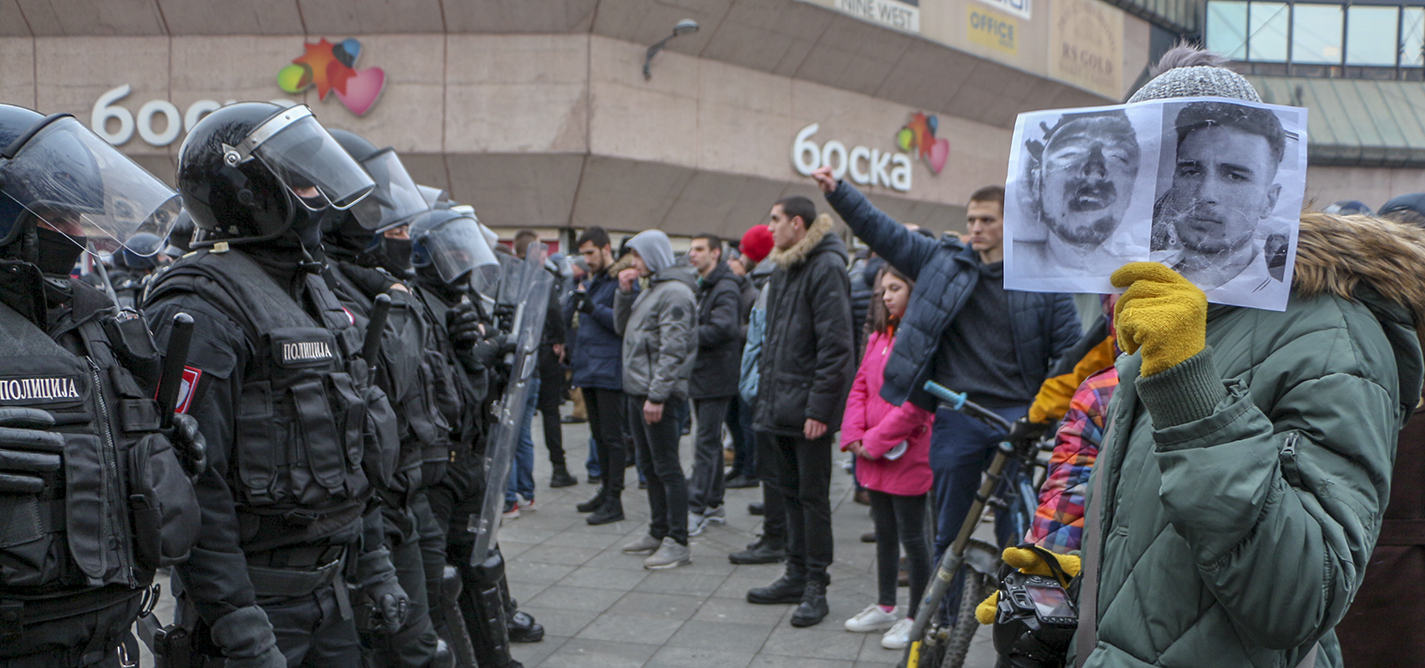
Who’s in charge of Banja Luka’s public space?
Civil society afraid of what post-corona times could bring.
In December 2018, the protests were forcefully put down by police.
Aleksandar Gluvić has already been sentenced to 20 days imprisonment or a fine of 700 euros.
“The system has been evidently repressing a specific group of citizens from gathering, challenging them or voicing their discontent.”
Milica Pralica, Oštra Nula“The unavoidable objections to the curbing of democracy should be countered with assertions that Republika Srpska is to gain strength and thrive.”
RS Academy of Arts, 2014The most important thing for the common people is to choose their side. If they pick right, they’re protected too.”

Ljupko Mišeljić
Ljupko Mišeljić was born in 1996 in Trebinje, Bosnia and Herzegovina. He has been a journalist since 2012, reporting mostly about culture, politics, transitional justice and human rights.
This story was originally written in Serbian.